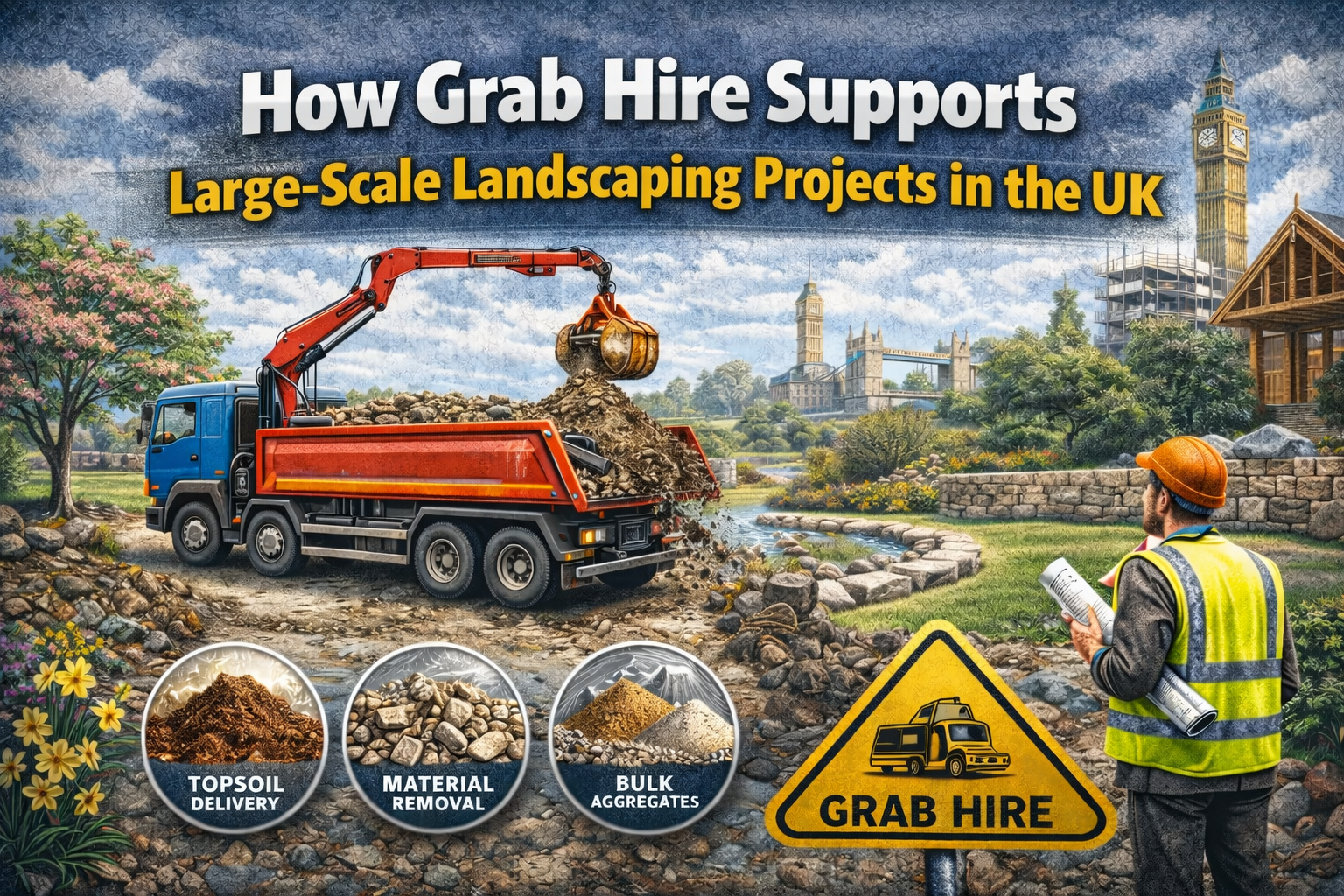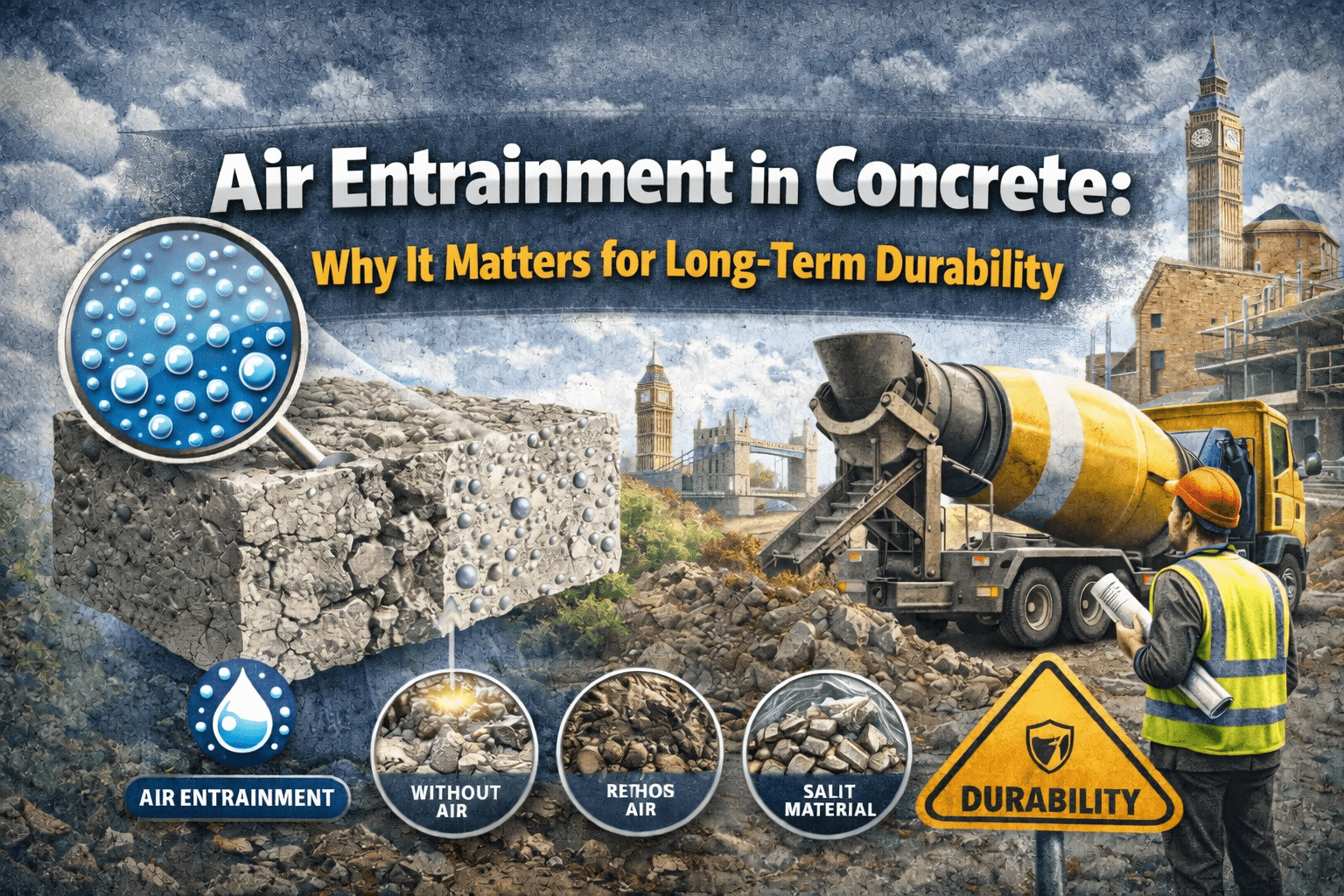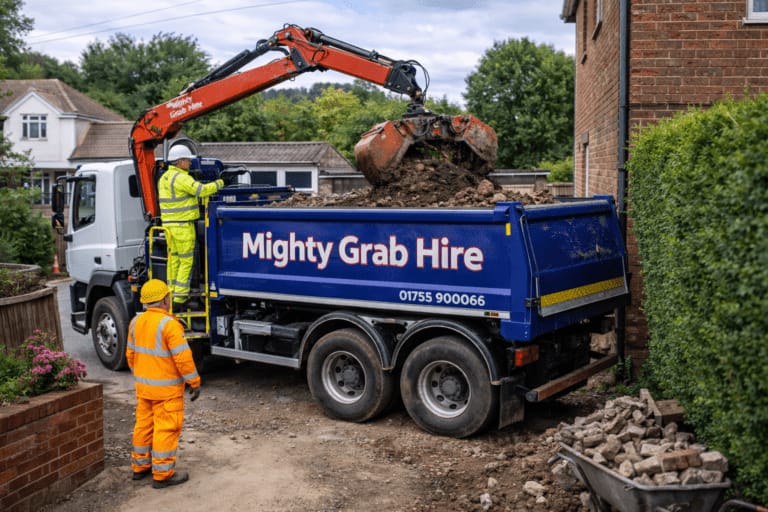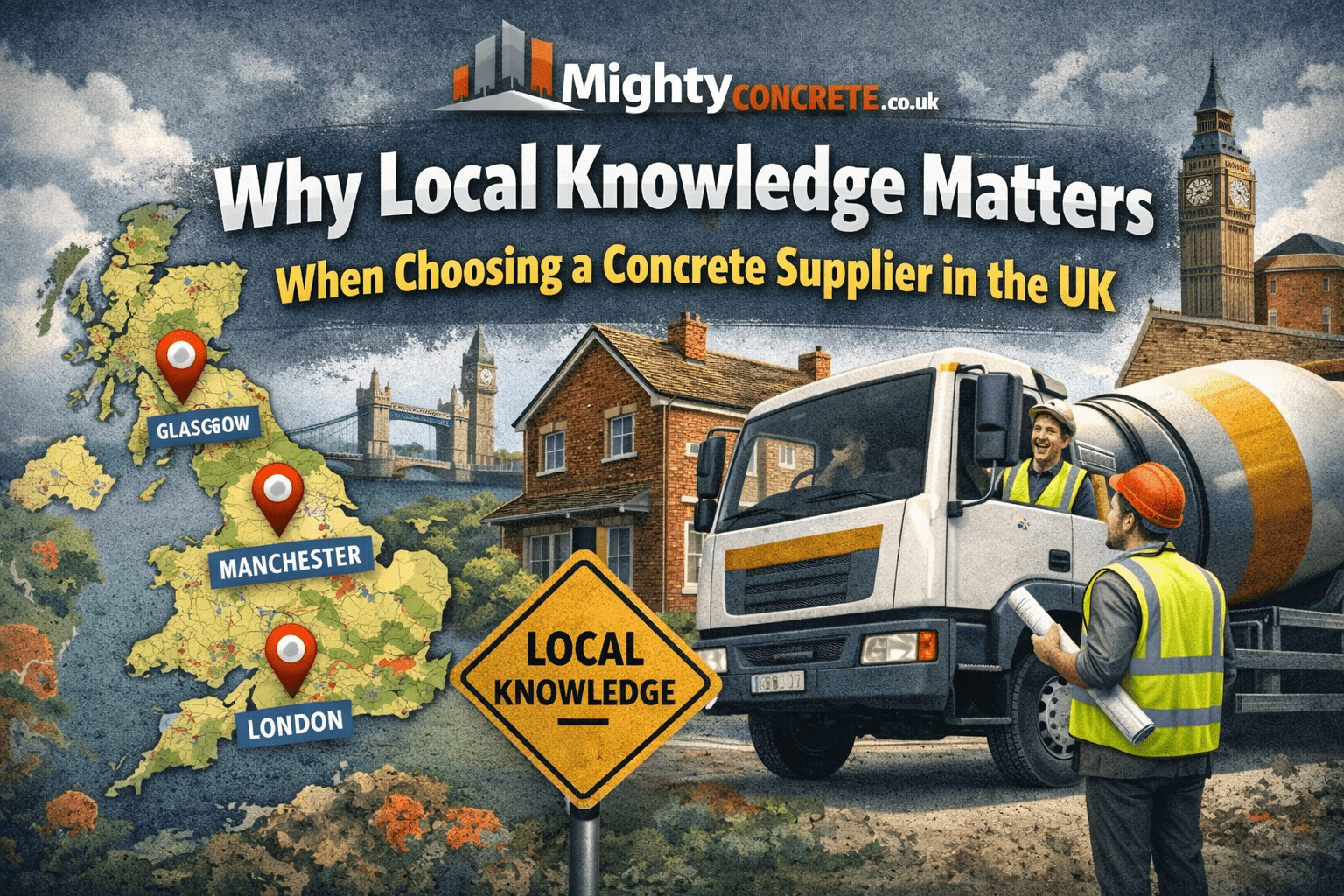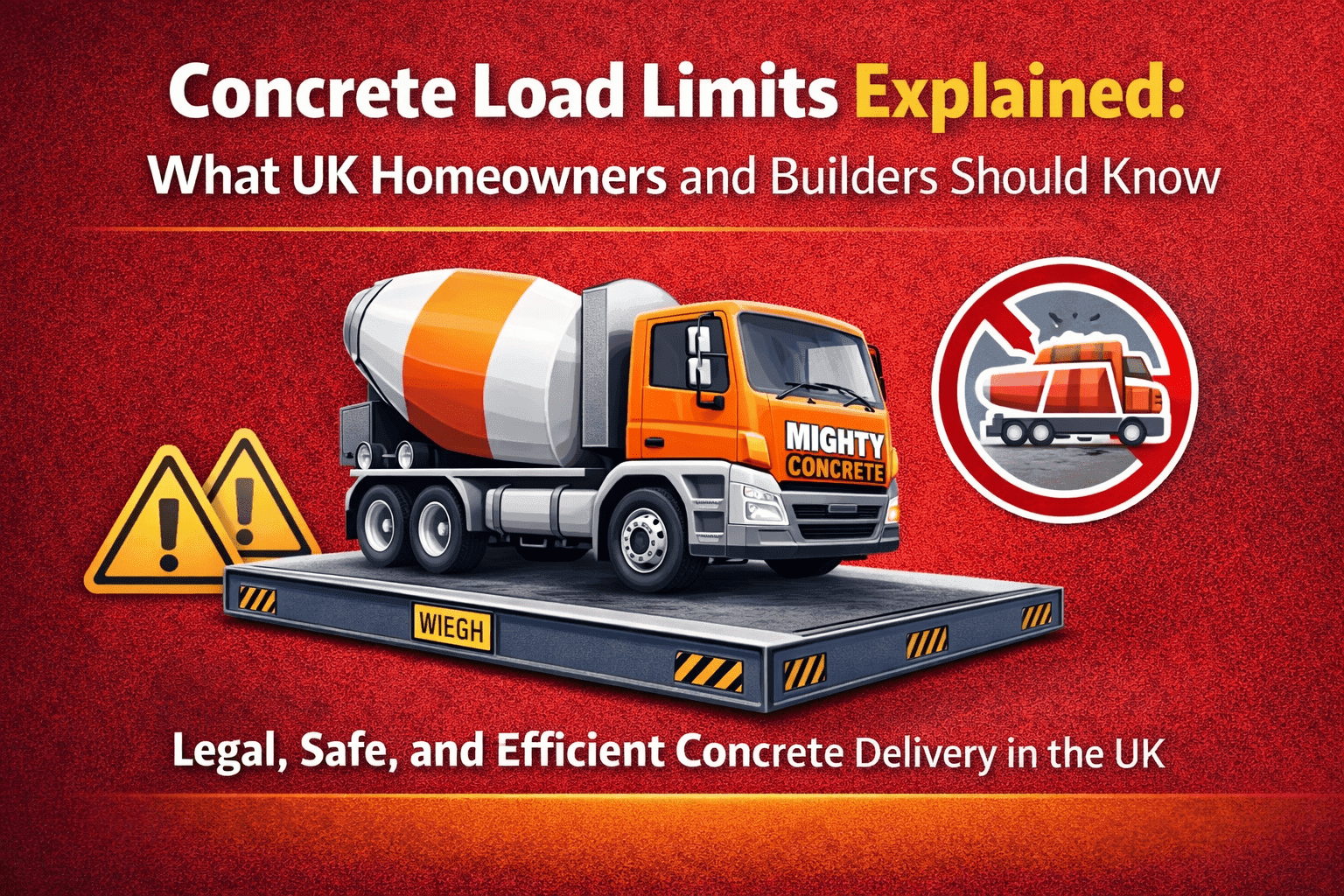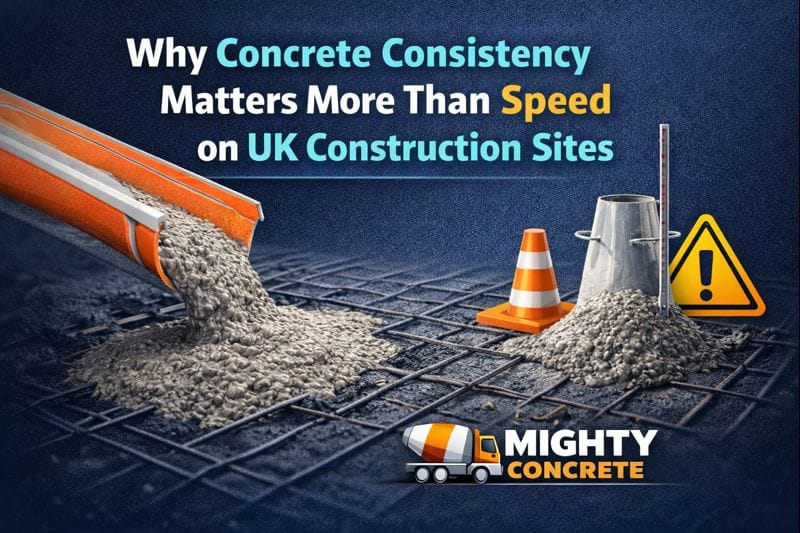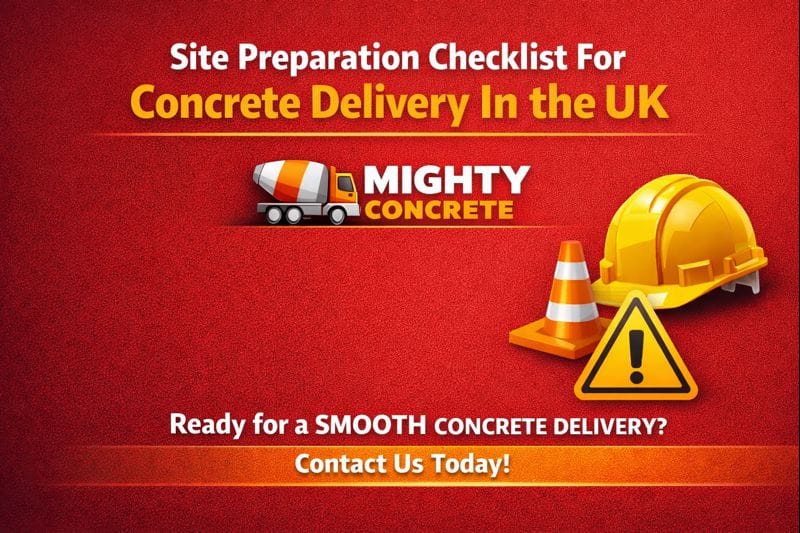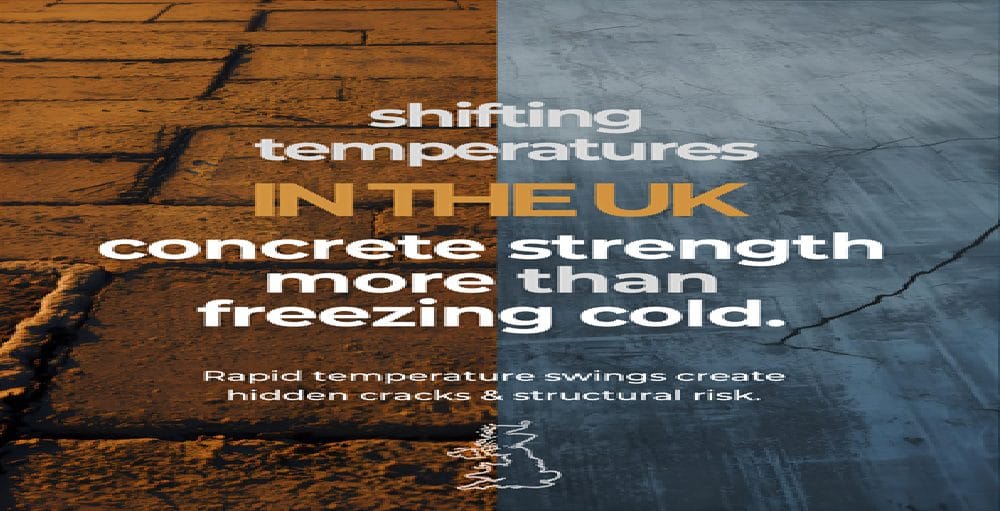Concrete functions as one of the leading construction materials globally. The combination of strength, durability and versatility makes concrete a fundamental material used to construct residential projects alongside large infrastructure developments.
Ready mix concrete (RMC) stands as the most efficient method to use concrete due to its convenience. Ready mix concrete is produced within controlled facilities before being delivered to sites in its fully ready state for immediate construction use. The use of ready-mix concrete leads to better quality results, along with faster construction time and reduced material waste.
In this blog, we will explore the different types of ready mix concrete available, their advantages, and their practical applications in various construction projects.
Why is Ready Mix Concrete Important?
The adoption of ready mix concrete instead of site-mixed concrete delivers multiple production-related advantages:
- Construction progresses faster because of the elimination of on-site mixing responsibilities.
- Use of precise measurements leads to reduced materials consumption and decreases total project cost.
- Better strength and durability result from controlling the mixing process.
- Optimised production alongside minimal waste makes ready mix concrete a sustainable choice.
This blog will provide information on various forms of ready mix concrete alongside their particular uses in building projects.
Types of Ready Mix Concrete Solution and Their Uses
There are various types of ready mix concrete, each designed for different applications. Choosing the right type ensures the structure’s stability, durability, and efficiency.
Normal Strength Concrete (NSC)
Composition:
- Cement, water, and basic aggregates (sand and gravel).
- Typically mixed in a 1:2:4 ratio (cement: sand: aggregates).
Strength: Compressive strength of 10 megapascals to 40 megapascals.
Uses:
- Commonly used for non-structural applications such as footpaths, pavements, and house floors.
- Suitable for small residential projects that do not require high-strength concrete.
Advantages:
- Affordable and easy to work with.
- Readily available and suitable for general-purpose construction.
High-Strength Concrete (HSC)
Composition: Similar to normal-strength concrete but with a lower water-to-cement ratio and special additives.
Strength: Compressive strength of 40 MPa to 80 MPa.
Uses:
- Used in high-rise buildings, bridges, and tunnels where load-bearing strength is crucial.
- Ideal for structures that require long-term durability and reduced maintenance.
Advantages:
- Withstands high loads, making it perfect for large infrastructure projects.
- More resistant to environmental damage, ensuring longevity.
Self-Consolidating Concrete (SCC)
Composition: Contains superplasticisers, making it highly flowable without requiring vibration.
Strength: Strength varies but is typically high due to its dense composition.
Uses:
- Ideal for complex structures with narrow spaces and heavy reinforcement.
- Commonly used in precast concrete elements and architectural structures that require a smooth finish.
Advantages:
- Reduces labour costs since it does not require mechanical vibration.
- Provides a superior finish, reducing the need for additional surface treatments.
Fibre-Reinforced Concrete (FRC)
Composition: Contains steel, glass, synthetic, or natural fibres to improve toughness.
Strength: Higher tensile strength than standard concrete.
Uses:
- Used in industrial floors, airport runways, and structures exposed to heavy traffic or vibrations.
- Common in warehouses, parking lots, and bridge decks.
Advantages:
- Prevents cracking and improves durability.
- Increases impact resistance, making it ideal for high-load areas.
Air-Entrained Concrete
Composition: Contains air-entraining agents that create small air bubbles within the concrete.
Strength: Moderate strength but high durability in freeze-thaw conditions.
Uses:
- Ideal for roads, bridges, and structures in cold climates.
- Used in outdoor applications that experience frequent freeze-thaw cycles.
Advantages:
- Prevents cracking caused by freezing and thawing cycles.
- Improves workability and makes concrete more resistant to harsh weather.
Lightweight Concrete
Composition: Uses lightweight aggregates such as expanded clay, perlite, or pumice.
Strength: Lower than normal strength concrete, but sufficient for non-load-bearing applications.
Uses:
- Used in upper floors, roofing, and partitions to reduce the weight of structures.
- Provides better thermal insulation, making it useful in energy-efficient buildings.
Advantages:
- Reduces structural weight, lowering material and foundation costs.
- Improves fire resistance and improves building safety.
High-Performance Concrete (HPC)
Composition: Includes special additives for increased durability, strength, and resistance.
Strength: Typically above 50 MPa.
Uses:
- Ideal for bridges, dams, tunnels, and marine structures.
- Used in nuclear power plants and chemical-resistant structures.
Advantages:
- Resistant to extreme environmental conditions.
- Reduces maintenance costs and extends the lifespan of structures.
Practical Applications of Ready Mix Concrete Solution in the UK
Ready-mix concrete is used in various sectors of the construction industry. Below are some common applications:
1. Residential Construction
- House Foundations – High-strength concrete ensures stability.
- Driveways & Patios – Fibre-reinforced or normal-strength concrete prevents cracking.
- Walls & Floors – Lightweight concrete provides insulation and reduces weight.
2. Commercial Construction
- Shopping Centres & Office Buildings – High-performance concrete supports large structures.
- Car Parks & Warehouses – Fibre-reinforced concrete ensures durability under heavy loads.
3. Infrastructure Projects
- Bridges & Roads – High-strength and air-entrained concrete prevent cracking.
- Railways – Fibre-reinforced concrete ensures durability in train tracks and platforms.
How to Choose the Right Ready Mix Concrete Solution
Choosing the right ready mix concrete is key to any construction project. Mighty Concrete’s quality mixes are designed for every need. For strong foundations and heavy loads, choose our high-strength concrete. For driveways, pavements, and floors, our normal mix works perfectly. Lightweight concrete helps reduce weight while improving insulation for roofs and partitions. In busy commercial or industrial areas, high-performance concrete offers extra durability. Our self-consolidating and fibre-reinforced options save time and reduce cracking. Trust our ready mix concrete to deliver safety, strength, and lasting value for your project. Experience quality and performance with every pour.
Mighty Concrete Services
Ready-mix concrete is an essential material in modern construction. It is available in various types, each designed to meet specific needs. From residential foundations to large-scale infrastructure, choosing the right mix ensures safety, durability, and cost-effectiveness. Before starting a project, it is essential to assess strength, durability, cost, and environmental impact. Mighty Concrete’s experienced team is available to discuss your requirements to ensure the best results for your domestic or commercial projects. Planning a construction project, use high-quality ready mix concrete tailored to your specific needs. Contact Mighty Concrete today!

